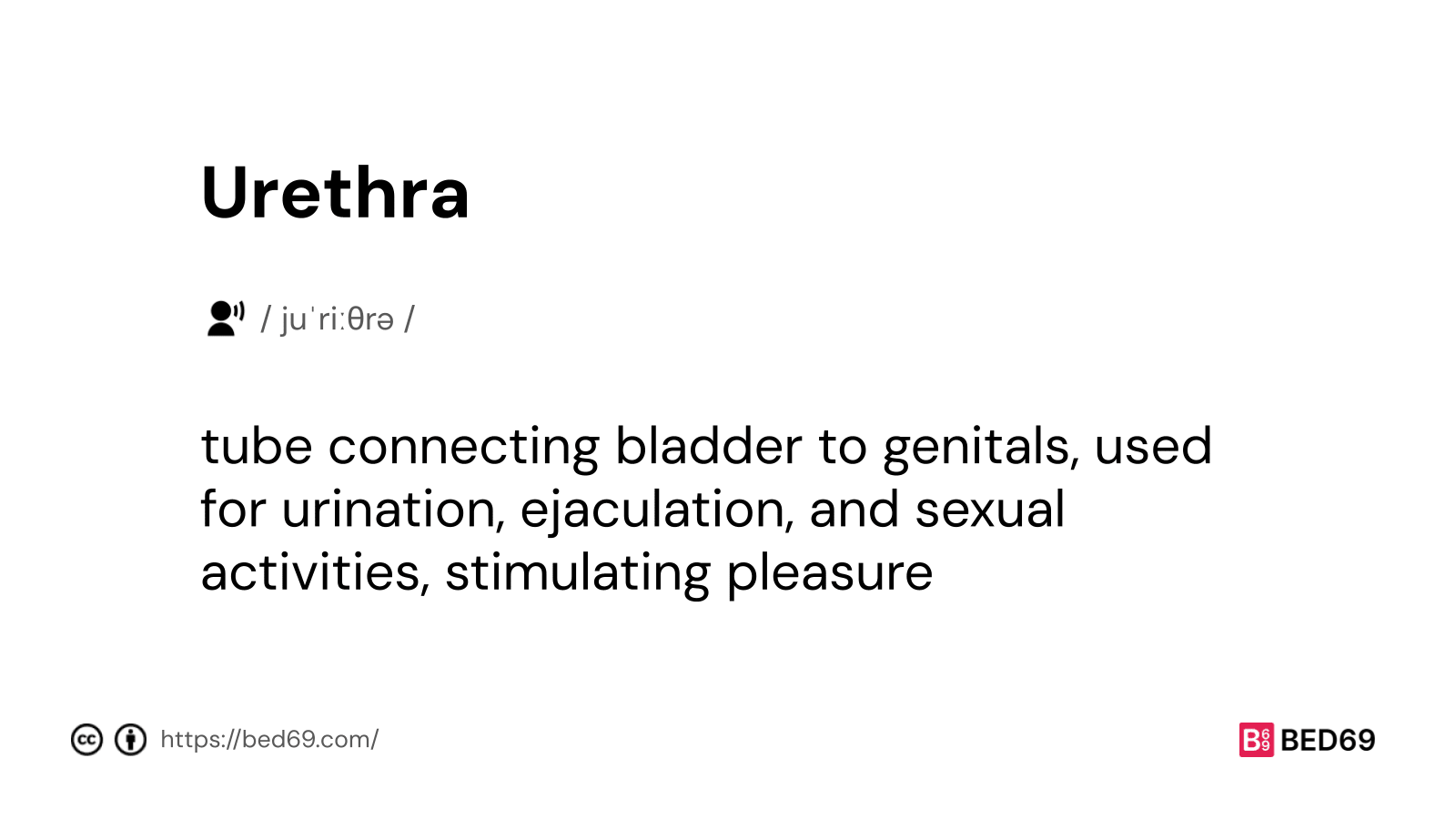What is Urethra?
The urethra is a tube connecting the bladder to the genitals, used for urination and ejaculation. In men, it’s about eight inches long, carrying urine and semen. In women, it’s shorter (1.5-2 inches), carrying urine and female ejaculate. It plays a role in sexual activities and can be stimulated or penetrated.
Urethra pronunciation: / juˈriːθrə /

What role does the urethra play in sexual activities
The urethra plays a role in sexual activities by facilitating the removal of semen or female ejaculate. It can also be stimulated or penetrated for sexual pleasure. Urethral intercourse, involving penetration of the urethra by a finger or penis, is one such act. Another practice, known as urethral sounding, entails inserting objects into the urethra.
However, these activities come with significant medical risks, such as stretching the urethral sphincter, incontinence, or infections. It is crucial to sterilize any objects used if experimenting with urethral intercourse or sounding to minimize potential harm. Additionally, sexually transmitted infections like gonorrhea or chlamydia can inflame the urethra, leading to conditions like urethritis.
Common medical conditions affecting the urethra
Common medical conditions affecting the urethra include urethritis, which is inflammation caused by sexually transmitted infections like gonorrhea and chlamydia. These infections can lead to discomfort and pain during urination.
Additionally, urethral stricture, a narrowing of the urethra, can result from scar tissue forming due to inflammation or injury. This condition can obstruct urine flow and lead to complications like urinary retention.
Another common issue is urinary tract infections (UTIs) affecting the urethra, often causing burning sensations and frequent urination. UTIs need prompt treatment to prevent complications. Furthermore, conditions like urethral diverticulum, a pouch-like sac near the urethra, can cause recurrent urinary tract infections and discomfort. It’s crucial to seek medical attention if you experience symptoms related to these conditions for proper diagnosis and treatment.
Explore other interesting terms:
